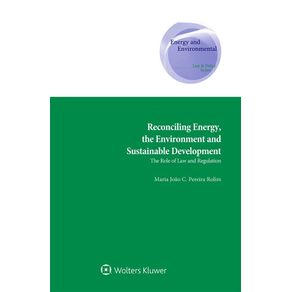Reconciling Energy, the Environment and Sustainable Development deals with one of the most intriguing questions of modern life from an under-explored legal perspective: energy transition and its relationship with law and regulation. It also explores the scope and meaning of sustainability and sustainable development in the energy field. Challenged by sustainability imperatives, the world faces a transition in how it uses and produces energy. Yet, despite the indisputable interdependence between energy and the environment, law in these two areas has developed separately, with little consideration for how the logic and aims of each might be reconciled. This innovative book addresses this crucial nexus, exploring the role that law must inevitably play as the effects of fossil fuel-induced climate change continue to radically affect every aspect of life on Earth. What’s in this book: Focusing on the emerging concept of reflexive regulation, the analysis takes giant steps in paving the way for effective legal engagement in the energy transition process. Issues and topics explored in detail include the following: energy’s distinctive characteristic as an economic activity that works in a chain, relation of physical aspects of energy to its legal and social dimensions, main aspects of regulation, environmental law and the concept of sustainability, specific security of supply challenges faced by the industry, and emergence and worldwide adoption of the environmental impact assessment as a procedural mechanism and its connection with Reflexive Regulation.

